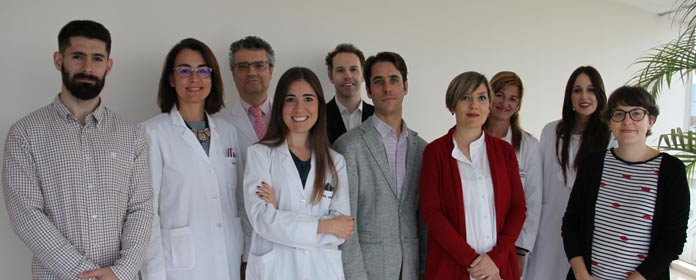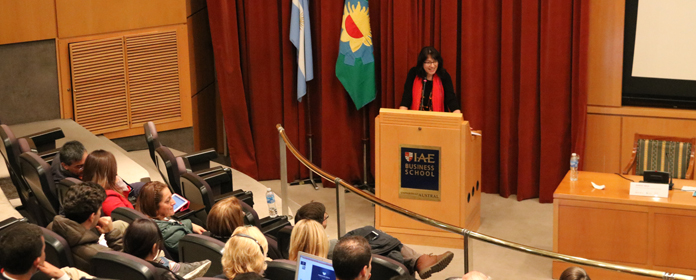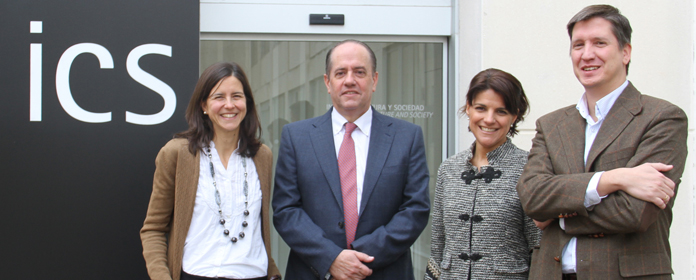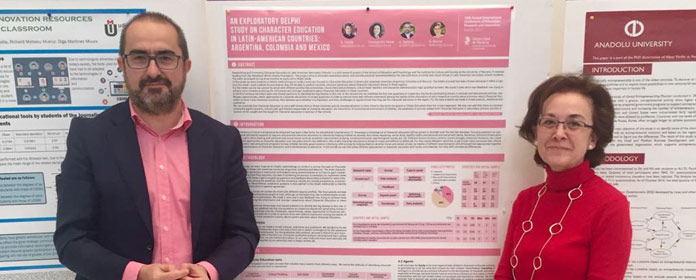Recuperar el pensamiento de Aristóteles para innovar en la educación del carácter
Kristján Kristjánsson, profesor de la Universidad de Birmingham, ofreció una visión filosófica y psicológica de la educación del carácter en el marco de un congreso internacional
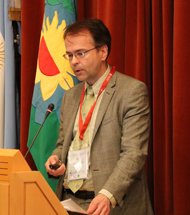
FOTO: Isabel Solana
Una visión aristotélica de la educación del carácter, basada en el pensamiento del filósofo griego y considerando los hallazgos científicos sociales al estilo del naturalismo ético. Esta es la apuesta de Kristján Kristjánsson y de la institución de la que es subdirector, el Jubilee Center for Character and Virtues de la Universidad de Birmingham (Reino Unido).
El experto presentó una conferencia en el congreso ‘Educación del carácter en Latinoamérica: retos y oportunidades’, que organiza la Universidad de Navarra en colaboración con la Universidad Austral (Argentina) y con financiación de Templeton World Charity Foundation.
El profesor Kristjánsson definió las virtudes como “rasgos del carácter estables y consistentes, relacionados con conductas moralmente loables en esferas específicas de la vida humana”.
Defendió la necesidad de priorizar la educación del carácter sobre otras cuestiones morales más generales: como ejemplo, mencionó que aprender sobre justicia en el aula y la familia es anterior a la justicia en la sociedad.
Apostó en concreto la propuesta aristotélica “por su buena fundamentación en una teoría moral viable y su rico repertorio conceptual (praxis, naturalismo, phronesis...)”. Asimismo, defendió que esta concepción de la educación del carácter, a diferencia de otras, no es instrumentalista.
Ocho problemas de la educación del carácter sin resolverEn un ejercicio de reflexión, a lo largo de su charla profundizó en una serie de problemas sin resolver que afectan a la educación del carácter en general, inclusive la visión aristotélica.
En primer lugar consideró la necesidad de conectar con los psicólogos y lograr que se sumen a esta propuesta, haciéndoles comprender la distinción entre hechos y valores y la idea de valor intrínseco.
En segundo lugar, aludió al problema de la heterogeneidad de la terminología de educación del carácter, tanto geográfica como histórica, que dificulta la implementación de programas en el aula, también los de perspectiva aristotélica.
Tercero, mencionó los factores genéticos, la idea de que el desarrollo de virtudes debe ajustarse a la personalidad; y cuarto, apuntó la variación de roles morales -y, por tanto, de aspiraciones y obligaciones- que se da según las diferentes situaciones que vive una persona (padre, estudiante, amigo, cliente...).
En quinto lugar señaló el problema de los habitus: las diferentes autoconcepciones sociales, étnicas y educativas que los niños portan en la escuela. “Gran parte de la investigación empírica sobre el desarrollo moral revela un fuerte vínculo con el entorno social y económico; los niños acomodados obtienen mejor puntuación que los pobres en esos estudios, pero pocos programas de educación moral abordan este tema directamente”, lamentó.
Así, animó a prestar atención a las formas en que los diferentes habitusde los niños de una escuela“se puedan convertir en un recurso moral en lugar de una fuente de desventaja potencial”.
El sexto punto fue el problema de la ‘cola racional’ movida por ‘un perro emocional’, que describe el psicólogo social Jonathan Haidt. “La educación del carácter no toma en cuenta los últimos hallazgos de lo que él denomina la ‘nueva síntesis en psicología moral’, una mezcla de un fuerte sentimentalismo sobre la moral –con la emoción como única fuente de valor moral- y un intuicionismo social sobre la motivación moral como algo innato, impulsado por las emociones. La razón desempeña aquí un papel significantemente reducido”.
Se preguntó cómo los educadores aristotélicos del carácter pueden responder aestos hallazgos y si“la emocionalización de la moral ha llegado demasiado lejos”.
La séptima idea fue el problema del autoconocimiento y la resistencia al cambio de uno mismo. “La perspectiva de la educación aristotélica del carácter tiende a sobrevalorar la capacidad de las personas de comprender quiénes son en realidad y su motivación para cambiar, incluso si se dan cuenta de que sus rasgos del carácter dejan bastante que desear”.
Por último, aludió a la necesidad de una teoría moral que sirva como ‘broche de oro’ en lugar de una ingeniería de piezas fragmentadas. “De vez en cuando –dijo- hay que salir de la caverna de las ideas y ver su interior desde la perspectiva del observador externo que pregunta para qué sirve realmente todo el discurso sobre educación del carácter”.
Como conclusión, animó a los especialistas en educación moral en general y educación aristotélica del carácter en particular a pensar sobre estas cuestiones. Les animó a que se nutran de “una dosis sustantiva de modestia intelectual” para mitigar “los objetivos transformadores de sus esfuerzos”.
Kristján Kristjánsson participó en el congreso internacional ‘Educación del carácter en Latinoamérica: retos y oportunidades’, que reunió a investigadores, profesores de colegios y responsables de políticas educativas. Tuvo lugar los días 13 y 14 de junio de 2018 en la IAE Business School de la Universidad Austral, en Pilar (Argentina).
El evento fue impulsado por 'Investigar y promover la educación del carácter en escuelas de secundaria en Latinoamérica', un proyecto de investigación conjunto de la Facultad de Educación y Psicología y el Instituto Cultura y Sociedad (ICS). Está financiado por la Templeton World Charity Foundation.


